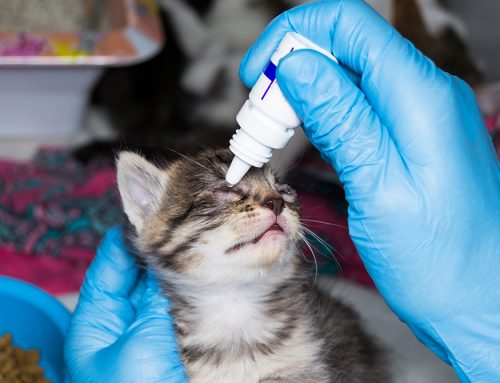Introduction
An acute allergic reaction is a sudden and severe response by the immune system to a substance (allergen) that the body mistakenly identifies as harmful. While allergic reactions can be mild, such as itching or sneezing, acute reactions can be life-threatening and require immediate veterinary care.
Common Causes
Pets can develop an acute allergic reaction to various substances, including:
- Insect bites or stings (bees, wasps, ants)
- Medications (vaccines, antibiotics, flea treatments)
- Food ingredients (certain proteins, additives)
- Environmental allergens (pollens, molds, chemicals)
- Vaccinations (though rare, some pets may react to vaccines)
Symptoms to Watch For
Acute allergic reactions can develop within minutes to hours after exposure to an allergen. Key symptoms include:
- Swelling of the face, ears, lips, or eyes
- Hives or raised bumps on the skin
- Vomiting or diarrhea
- Difficulty breathing or wheezing
- Excessive drooling
- Pale or bluish gums
- Weakness or collapse
If you notice any of these symptoms in your pet, it’s crucial to seek veterinary attention immediately.
Diagnosis and Treatment
When you bring your pet to Mission Veterinary Clinic with signs of an acute allergic reaction, our team will perform a thorough examination and may recommend diagnostic tests to identify the allergen. Treatment typically involves:
- Antihistamines to reduce allergic response
- Corticosteroids to decrease inflammation
- Epinephrine for severe reactions, particularly if breathing is compromised
- Intravenous fluids to maintain blood pressure and hydration
- Oxygen therapy for pets with respiratory distress
In severe cases, hospitalization may be required for monitoring and supportive care.
Prevention and Management
While it may not always be possible to prevent allergic reactions, you can reduce the risk by:
- Identifying and avoiding known allergens that trigger your pet’s reactions
- Using flea and tick preventatives that your veterinarian recommends
- Keeping your pet away from areas with known insect nests (e.g., wasp nests)
- Feeding a diet free from known food allergens if your pet has food sensitivities
What to Do in an Emergency
If your pet is experiencing an acute allergic reaction, follow these steps:
- Stay calm and remove your pet from the source of the allergen if possible.
- Call Mission Veterinary Clinic immediately at 818-363-8143 or head directly to the clinic for emergency care.
- Monitor your pet’s breathing and general condition while on your way to the clinic.
Conclusion
Acute allergic reactions can be frightening, but with prompt veterinary care, most pets recover fully. If your pet has a history of allergic reactions or you suspect an acute allergic reaction, don’t hesitate to contact us. Our team at Mission Veterinary Clinic is here to provide the necessary care to keep your pet safe and healthy.










Leave A Comment